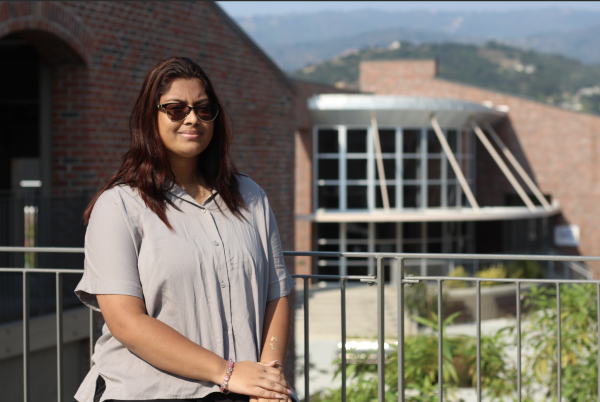Running from the riptide
Exploring how my childhood passion for marine biology shifted as I grew older
May 9, 2023
I remember reaching down to touch the water during my first visit to Hawaii, in awe at how clear my reflection was and how bright and ethereal the ocean seemed. To my third-grade self, being at such a large beach and seeing and touching animals that were so majestic they seemed out of this world was stupefying. And so, following the week-long trip to Oahu, I knew that working in the water was what I wanted to do.
I told my parents that I wanted my future to include the ocean — to spend time diving into and looking at the marine life that expanded across the world. They were bewildered at the sudden interest in something I had never even looked twice at, but acquiesced, telling me they’d support my ambition if it was something I truly wanted to do.
After that vacation, I began attending camps at the Marine Science Institute in Redwood City, visiting mud flats, touching sharks and even going on boating expeditions. I attended these throughout elementary school, and purchased a heavily-used membership to the Monterey Bay Aquarium.
On a second trip to Hawaii nearly four years later, I went snorkeling for the first time, and the experience was amazing. It seemed like marine biology was what I was going to do for the rest of my life — the prospect was thrilling. I was so focused on marine biology I pushed away any other passions, missing martial arts classes to research whales and hyperfocusing my scouting experience on the sea by doing almost purely ocean-related activities.
When I joined Model UN in sixth grade, I initially kept it at arms length, too focused on the ocean. However, as time passed, I started to fall in love with learning about the world, and marine biology slowly started to lose its thrill. Throughout middle school, I still attended marine biology camps and learned about life under the sea, but soon began to look forward to United Nations conferences and meetings, feeling myself swimming farther away from what had previously been my dream.
But I couldn’t make myself leave it all behind. I kept volunteering at the Marine Science Institute and even reached out to marine biologists just to hear more about their job and experiences. All the while, I hoped that deep down, these activities would help rekindle the passion I once had. I couldn’t accept that maybe marine biology wasn’t what I wanted to do with my life, that all the effort and interest I had put into the ocean would go to waste, just like that. I denied the fact that perhaps I had grown up and understood my interests better, instead constantly telling myself that building a career as a marine biologist was still my dream.
However, I soon came to realize that most of my peers weren’t as set in their future careers as I was. At a camp for journalists this past summer, I got to know people from all over the country, majoring in things I had never even heard about. Talking about our past hobbies, I was floored when I realized that so many of them had switched from what they originally wanted to be in order to pursue newfound interests.
I clearly remember talking to a senior from the outskirts of Los Angeles — upon asking her about her plans for college, she told me that although she had wanted to go into criminal justice for years, she had recently discovered an interest in economics, and was planning on majoring in that. Her backstory was strikingly similar to mine, with her currently having an interest in something that was completely different from what she had devoted a portion of her life to pursuing.
Her story helped me take a step back and look at what I was doing to myself. I was still a freshman, so why was I acting as if marine biology was the only thing I could do in my life? If I had lost my passion for it, it would still be fine to go and try something new, right?
Maybe it was due to focusing purely on marine biology for the last few years, or maybe it was because I had come to love other activities, but it became clear to me that I no longer loved marine biology the way I used to. I knew that if I were to continue on my path and major in the science purely because it was my childhood dream, I would be miserable.
Having those conversations with others and learning about how often people find new interests made me realize that it’s OK to let go of one’s childhood dreams. The important thing is to be willing to let go of a past hyperfixation, and acknowledge that feelings can change as people do. Since third grade, where I first developed my interest in marine biology, I’ve matured and learned more about myself and the world around me, and these new experiences have allowed me to further develop my interests and understand what truly excites me.
Letting go of past dreams doesn’t mean someone is letting their past self down; it means that they are giving themselves the opportunity to further develop the person they are now. While I’ll always look fondly upon the ocean and the time I spent wishing to work in it, I’m even more excited for a future doing things that, at the moment, I truly enjoy.

















